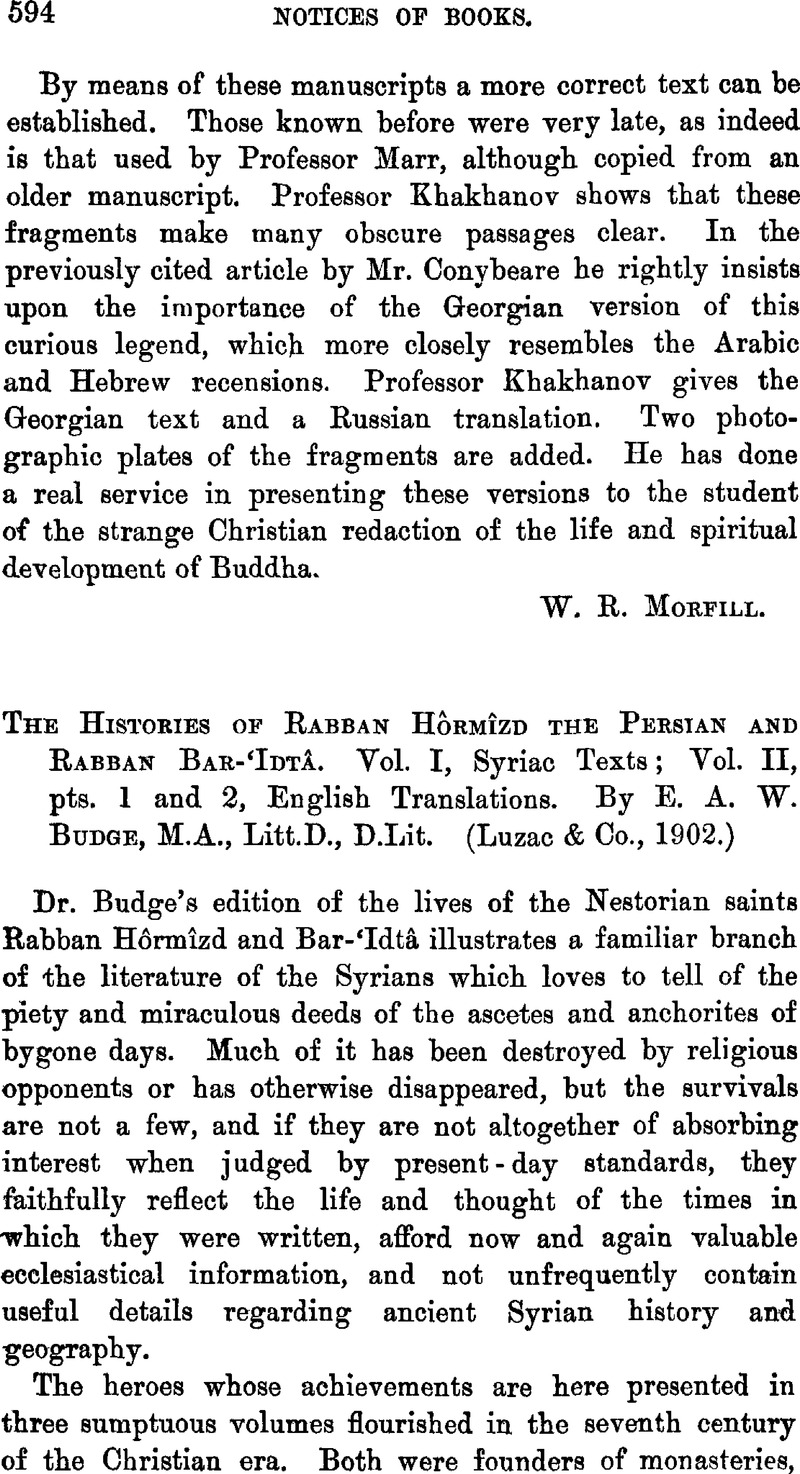No CrossRef data available.
Published online by Cambridge University Press: 15 March 2011

page 595 note 1 Students of folklore will at once recall analogies. For a parallel, from the Yezîdî's, see the Jewish Quarterly Review, April, 1902, p. 431. Excerpts containing the recipes for the preparation of the ḥĕnânâ and shĕyâgtâ are given by ProfessorWright, in the Cambridge Catalogue of Syriac MSS., pp. 344 sqqGoogle Scholar.
page 596 note 1 See the usual laudatory colophon on pp. 109 and 202 of the Syriac text. The same scribe wrote the Cambridge Add. 2811 (dated 1883).
page 596 note 2 To be referred to as C.a and C.b respectively (and as C. where they agree). B. = the text printed by Dr. Budge (S.T. Syriac text, E.T. English translation).
page 596 note 3 Whether these two MSS. were actually acquired by Badger at Alkosh is not known.
page 597 note 1 It may be added that Budge's emendation on p. 126 is so far supported by C. that these agree in reading ![]() , a plural form, which, however, does not seem to be supported by the lexicons.
, a plural form, which, however, does not seem to be supported by the lexicons.
page 597 note 2 The word is gentilic, “man of Nimrod”; hardly, as Budge suggests, “a rebellious one,” but a synonym for “Persian”; cf. Nöldeke's, note in Z.D.M.G., xxviii, p. 279, n. 1Google Scholar. R. Hôrmîzd is elsewhere called a Persian, or son of Persians, e.g. E.T., pp. 124, 153 sq.
page 598 note 1 The reading “go up and beat the board” (S.T., p.38,1.4, ![]() ) is probably to be preferred to
) is probably to be preferred to ![]() , “take [the hammer] and beat,” etc.
, “take [the hammer] and beat,” etc.
page 598 note 2 The translation, here and elsewhere, is adapted to Dr. Budge's. The second note on p. 14 of the English is unintelligible as it stands.
page 599 note 1 There is, accordingly, no need for Dr. Budge's emendation ![]() . The corruption has arisen, of course, from
. The corruption has arisen, of course, from ![]() =
= ![]() .
.
page 600 note 1 “I entreat thee to examine thyself a little” (E.T., p. 143, 1. 80 sq.) is incorrect. The meaning is probably, “Do you wish to gain some idea [as to why I have not appeared?” etc.]. B.'s ![]() is perhaps to be preferred.
is perhaps to be preferred.
page 601 note 1 In the account translated by Hoffmann, Hôrmîzd spends seven years at Rîshâ and 22 in his own monastery, and the total is 87.
page 602 note 1 ![]() in the same line is probably an error for
in the same line is probably an error for ![]() .
.